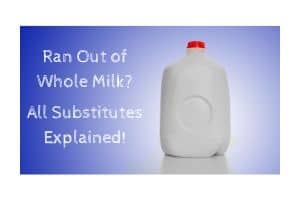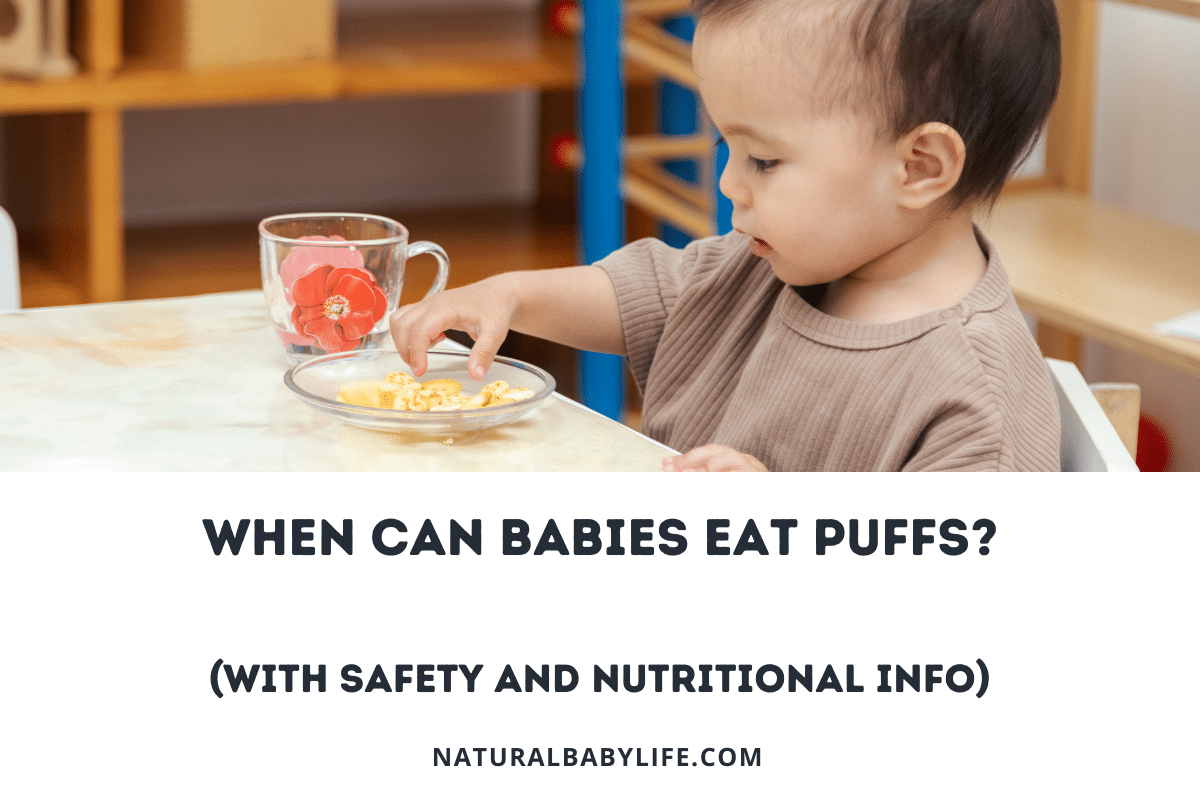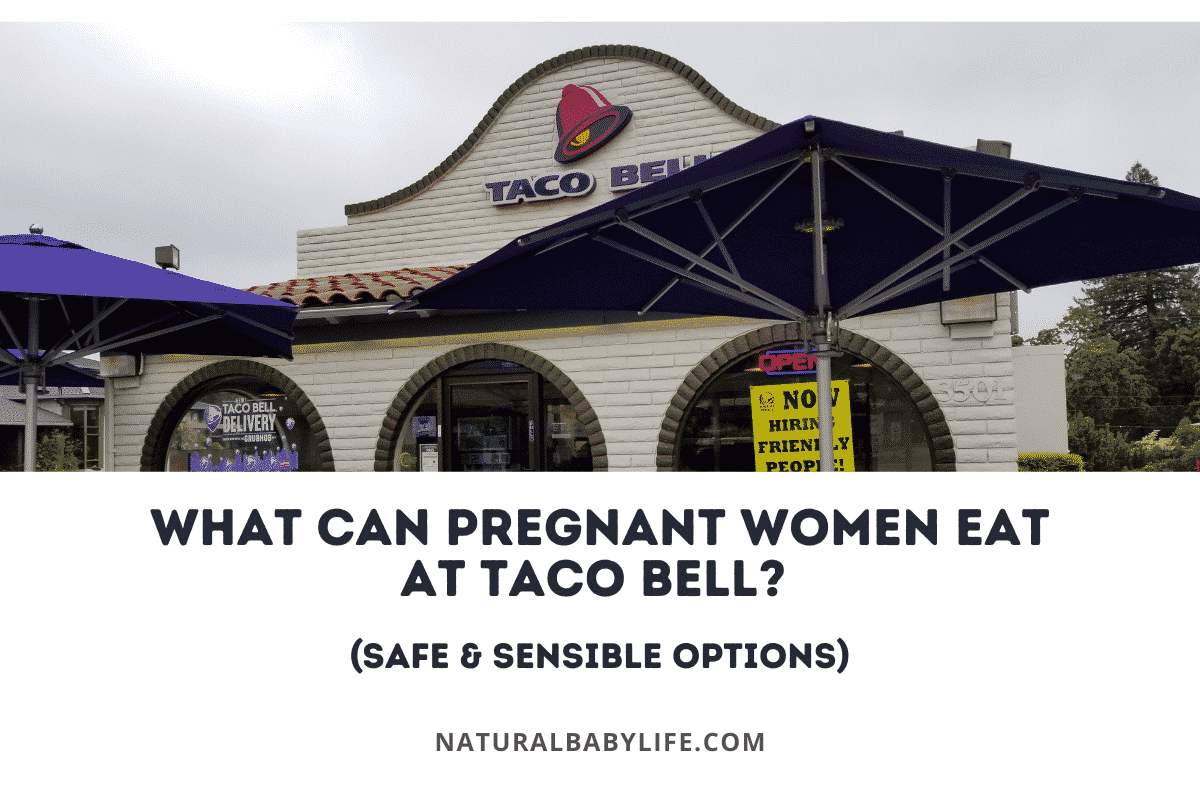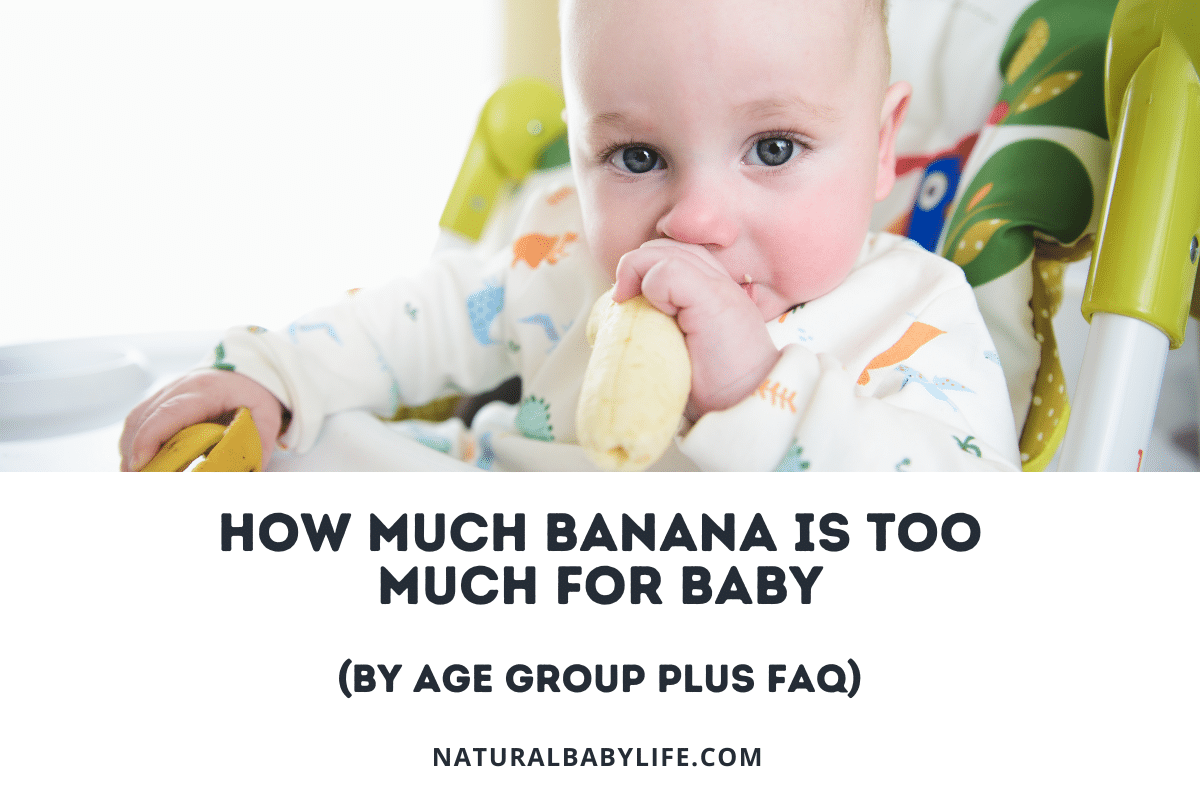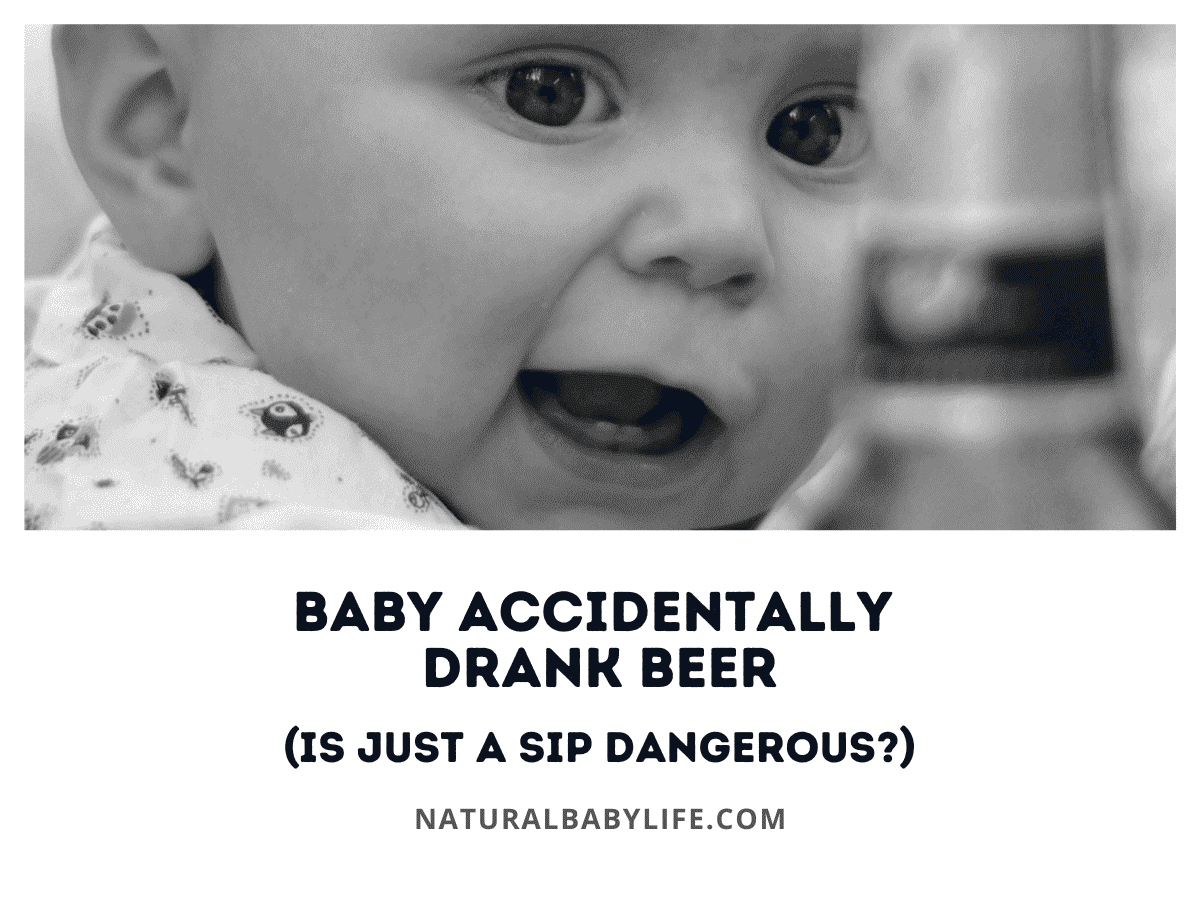Every parent finds themselves in front of the fridge at some point with the realization that they have run out of whole milk for their baby. If that has happened to you, you are probably wondering what else you could give your baby to drink as a substitute until you can run to the store.
Babies can start drinking whole cow’s milk after they turn one year old. There are several whole milk alternatives that can be used in a pinch, but they shouldn’t be a long-term replacement. Other substitutes have dietary or allergy-related concerns that you need to be aware of before you try them.
Read on to learn more about when babies can drink cow’s milk in the first place along with all of the alternatives that you could use if you run out of whole milk.
Table of Contents
When Can Babies Drink Cow’s Milk, Anyway?
According to Kids Health, it is recommended that you wait until your baby is about a year old to give them regular, whole-fat cow’s milk. Giving your baby cow’s milk as the main drink before this point for feedings will leave him or her short of important nutrients that infants need. Between six months to a year old, babies need breastmilk or formula as their main drink, because they help keep up their supply of iron. Cow’s milk lacks the proper amount of this crucial nutrient.
Also, your baby’s stomach will not be ready to digest cow’s milk in large portions until after they turn one. Experts state that when babies drink whole milk in large quantities, they can experience irritation in the lining of their gut, which can lead to microscopic blood loss and anemia. It should be okay, however, to use a little cow’s milk in your baby’s food once they start eating solids.
After your baby turns a year old, you can give them full-fat cow’s milk in a sippy cup. By then, they should be getting a sufficient amount of iron from other foods. Regular milk provides important nutrients your older infant and toddler needs between the ages of 1-3. They will need 350mg of calcium each day, which equals about 1.25 cups of whole milk.
Make sure to give your growing infant full-fat cow’s milk, as this drink offers more helpful vitamins they will need. Little babies need the fat in whole milk to support their growth and brain development into the early toddler years. Once your baby turns two, it’s safer to give them semi-skimmed milk, but skim milk should wait until they turn five.
Here are some tips to keep in mind when you do make the switch to cow’s milk from formula or breast milk:
- When you make the switch, give your baby about 2 cups of milk each day.
- If your baby was breastfed, it may ease the transition to warm the cow’s milk a little before serving it to your little one.
- Mix a little formula or breast milk into the regular cow’s milk to give your baby a familiar taste.
- If your pediatrician recommended soy or hypoallergenic formula for a milk allergy as a newborn, make sure to check with your baby’s physician before starting them on regular milk as a one-year-old.
Alternatives to whole milk for baby
Running out of whole milk for your baby can feel stressful, but odds are that you have a possible substitute in your fridge or pantry right now. Importantly, most of these substitutes should only be used briefly while you are restocking your whole milk supply. In some cases, the replacement won’t have the correct fat content, vitamins, and minerals that your baby needs. In other cases, there might be a risk of allergy.
In the past, cow’s milk used to be the main go-to for parents and their children. Now, however, parents have a lot more options when it comes to feeding their babies with allergies or for those families taking the vegan route. There are many safe alternatives that you may already have in your fridge when feeding your baby in a pinch. Here are some guidelines on how to choose those various kinds of milk.
2-percent milk
It is safe to give your baby 2-percent milk after his or her first birthday. 2% milk is actually quite close to whole milk in terms of fat content so it’s not too far of a stretch to substitute this.
However, many doctors recommend sticking to whole milk unless your family has a history of obesity, heart disease, or high cholesterol. You can also give your baby reduced-fat milk if your doctor believes that your baby is already getting enough fat elsewhere in their diet. This is also a great choice if your infant’s body mass index is in the 95th percentile.
Skim milk
Skim milk may not be a good choice for a one-year-old, but it can do in a pinch. Your baby might make a face at the flavor or texture of skim milk after drinking whole, but it shouldn’t cause too many issues!
In the early toddler years, your child will need the fats in whole milk to support their growth. A diet including skim milk can lack the fat and calories your growing baby needs. However, infants who are overweight or who have a family history of heart disease or high cholesterol may be recommended to drink skim milk instead of whole milk.
Evaporated milk
It is okay to give you one-year-old or toddler evaporated milk if you are in a bind, but it should not replace regular milk in your baby’s diet. It cannot provide the nutrients your baby needs. Evaporated milk is essentially regular milk that has had the majority of the water removed to give it longer shelf life. You add the water back in before serving, but it still will not have the necessary nutrients to support your child’s growth and development.
For anyone out there thinking that evaporated milk sounds crazy, consider that mothers as recently as the 1960s didn’t have access to the modern formula that we have today. In fact, evaporated milk was what most mothers used on a daily basis! Obviously, we have better stuff now, but don’t feel too bad if you have to dip into the pantry for this one!
Powdered or dry milk
Similar to evaporated milk, powdered or dry milk lack the important nutrients your infant needs. This is an okay go-to for grocery emergencies, but it should not replace regular milk in your baby’s diet. It’s handy to keep a little powdered milk in the pantry because the shelf life is so long. You never know when you might need to use it!
Sweetened condensed milk
Sweetened condensed milk has a very high amount of sugar, so it is not a great option for infants. It must be greatly diluted before serving in order to reduce that percentage of sugar. If you are in a bind, it would be a little more ideal to use unsweetened condensed milk, if you have it. When mixed with the proper amount of water, however, it can be comparable to regular milk.
Soy milk
Soy milk is okay for your baby to drink after the age of one because it is an acceptable alternative to regular cow’s milk. It offers many of the same nutritional benefits. If you decide to serve your infant or toddler soy milk, make sure that it is fortified and unsweetened. Soy milk can be a great choice if your child has a dairy allergy, is lactose intolerant, or if you and your family are vegan. Be sure to check the fat content, however, as fat is still important for your baby to consume at this age!
Almond milk
Like soy milk, almond milk can be a great substitute for cow’s milk after your baby’s first birthday. It is a good choice to serve your child if you are avoiding dairy due to lactose intolerance or veganism. However, there are some nutritional differences between almond milk and cow’s milk, so it’s important for you to talk about these specifics with your child’s doctor or a certified dietician.
Since they are nuts, almonds are also a potential allergen. If your baby hasn’t eaten anything with almonds in it before, or you know that she is allergic to another type of nut, then proceed with caution.
Cashew milk
Cashew milk is another safe alternative to cow’s milk for your child older than a year old. However, plant-based milks like this can lack the proper protein and other nutrients your baby needs. Two cups of cow’s milk can provide 16g of protein, while plant-based milk like cashew milk can only offer 2g. It also has less fat than regular cow’s milk.
The same warning here when it comes to potential nut allergies. Proceed with caution!
Rice milk
Rice milk is safe for babies older than a year to drink occasionally. However, it should not replace regular cow’s milk in your infant or toddler’s diet. This milk offers a lot less fat and protein than regular milk. It’s okay for your child to have a drink of rice milk every now and then, but you should definitely consult with a physician or dietician to make sure your baby is getting the proper nutrition he or she needs.
This is another drink that used to be more common for babies to drink but was replaced with better options.
Oat milk
Similar to the other plant-based milks, oat milk is another safe alternative if your family is trying to avoid dairy products. It’s a great choice for children who have intolerances or allergies because oat milk lacks lactose, nuts, soy, and gluten (if it was made from gluten-free oats). It can also benefit bone and heart health in your little one. However, if your child does not have these intolerances, it’s still important to incorporate whole milk in your infant or toddler’s diet because their growing bodies will need the nutrients and fats.
Hemp milk
Hemp milk is another great plant-based option if you are trying to steer your baby clear of dairy and it’s a great source of Omega 3 and 6 fatty acids. However, it does lack some of the nutrition that doctors say is important for your little one. Two cups of hemp milk can offer 6g of protein, which is a bit more than some of the other plant-based milk alternatives. Hemp milk also has less fat than cow’s milk, sometimes half the amount. This is important to consider when it comes to your baby’s caloric intake and their little growing bodies.
When in Doubt, Consult Your Pediatrician
There are many options out there for feeding your infant. It can often be overwhelming for new parents, but there are always resources like this article available to help you out. It is important that you consider what is best for your baby’s specific health needs. To get the best advice on your child’s diet, always make sure to consult his or her pediatrician before making any drastic changes in what you’re feeding them.

